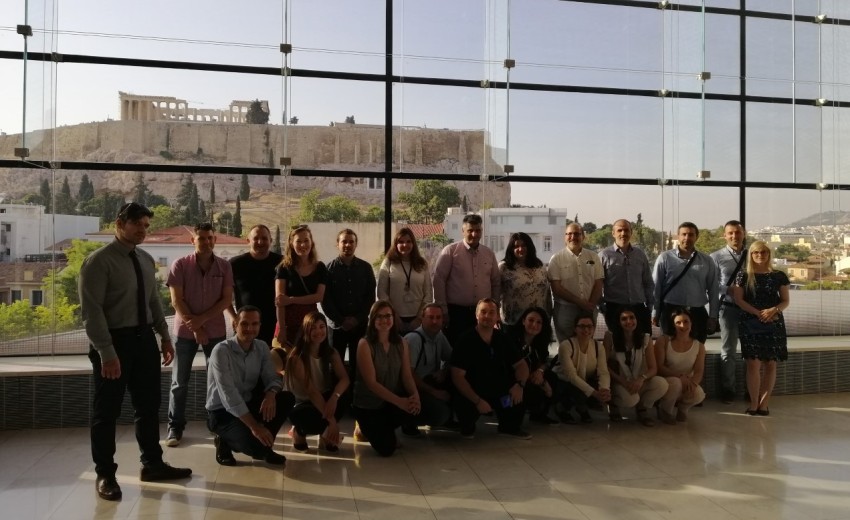Athens hosts the kick-off meeting of European project INNOCAT
Our day by day / 21-06-2019
On the 13th of June, we travelled to Athens to attend the kick-off meeting of the European project INNOCAT, which belongs to the EIT Regional Innovation Scheme (EIT RIS), particularly to the EIT Raw Materials KAVA (KIC Added-Value Activity) call. Greek company Monolithos Ltd., leader of the project, hosted this meeting in which the project’s challenges for the next 24 months were reviewed.
Under the title 'Innovative CRM substitution technology for public authorities' vehicle catalysts', INNOCAT aims to diffuse innovative technologies for the replacement and recycling of platinum group metals (PGMs) in their application as catalysts for the automotive industry. PGMs comprise six transition metals from the periodic table (ruthenium (Ru), rhodium (Rh), palladium (Pd), osmium (Os), iridium (Ir) and platinum (Pt)) that have been classified as critical raw materials (CRM) by the 2017 European Commission’s CRM list. These metals are rare and difficult to produce, so the supply risk is very high for the EU. Their importance for the automotive industry motivates this project for the replacement and recycling of PGMs in automobiles.
The project will promote already existing technologies that have managed to reduce the use of PGMs up to 60% by replacing them with copper nanoparticles. In addition, it is intended to promote the recovery and recycling of catalysts to facilitate reuse of PGMs, in line with the principles of the Circular Economy. The project will focus on promoting these technologies in heavy-duty vehicles owned or operated by public authorities, often aged and with very high CO2 emissions, but which are not replaced due to their relative low mileage.
INNOCAT aims to create innovation ecosystems among the so-called 'eligible countries of the RIS' (Bulgaria, Croatia, Cyprus, Czech Republic, Estonia, Greece, Hungary, Italy, Latvia, Lithuania, Malta, Poland, Portugal, Slovakia, Slovenia, Spain and Romania), to stimulate the emergence of new companies and encourage business development based on the commercialization of these novel technologies.
The benefits of this approach will be effectively demonstrated within the 8 participating countries (Greece, Spain, Poland, Czech Republic, Bulgaria, Slovakia, Hungary and Slovenia) by adapting their fleets of heavy-duty vehicles owned or operated by regional public authorities, which will result in both economic and environmental benefits. The project will seek active contribution of public authorities, policy makers, private companies (from automotive but also from waste management and secondary raw materials), as well as academic, training, and R&D organizations.
The role of ICAMCyL within the project will focus, on the one hand, on the collection of data on PGMs and fleets of heavy-duty vehicles within the region and, on the other hand, on the selection of a specific vehicle for retrofitting as a pilot experience within the project. In addition, we will participate in dissemination and communication activities through the organization of workshops and match-making events to facilitate the adoption of these new technologies both in the public and private sectors.
This project belongs to ICAMCyL’s strategy to promote novel technologies that reinforce resource efficiency and the objectives of the Circular Economy, including the recovery of secondary raw materials which can have a second (and third, fourth ...) life through innovative recovery and recycling processes.
European project INNOCAT is funded by the EIT Regional Innovation Scheme (EIT RIS), a body of the European Union. Project number: 18344. FAST-TRACK Call for KAVA 5 projects. RIS segment.



